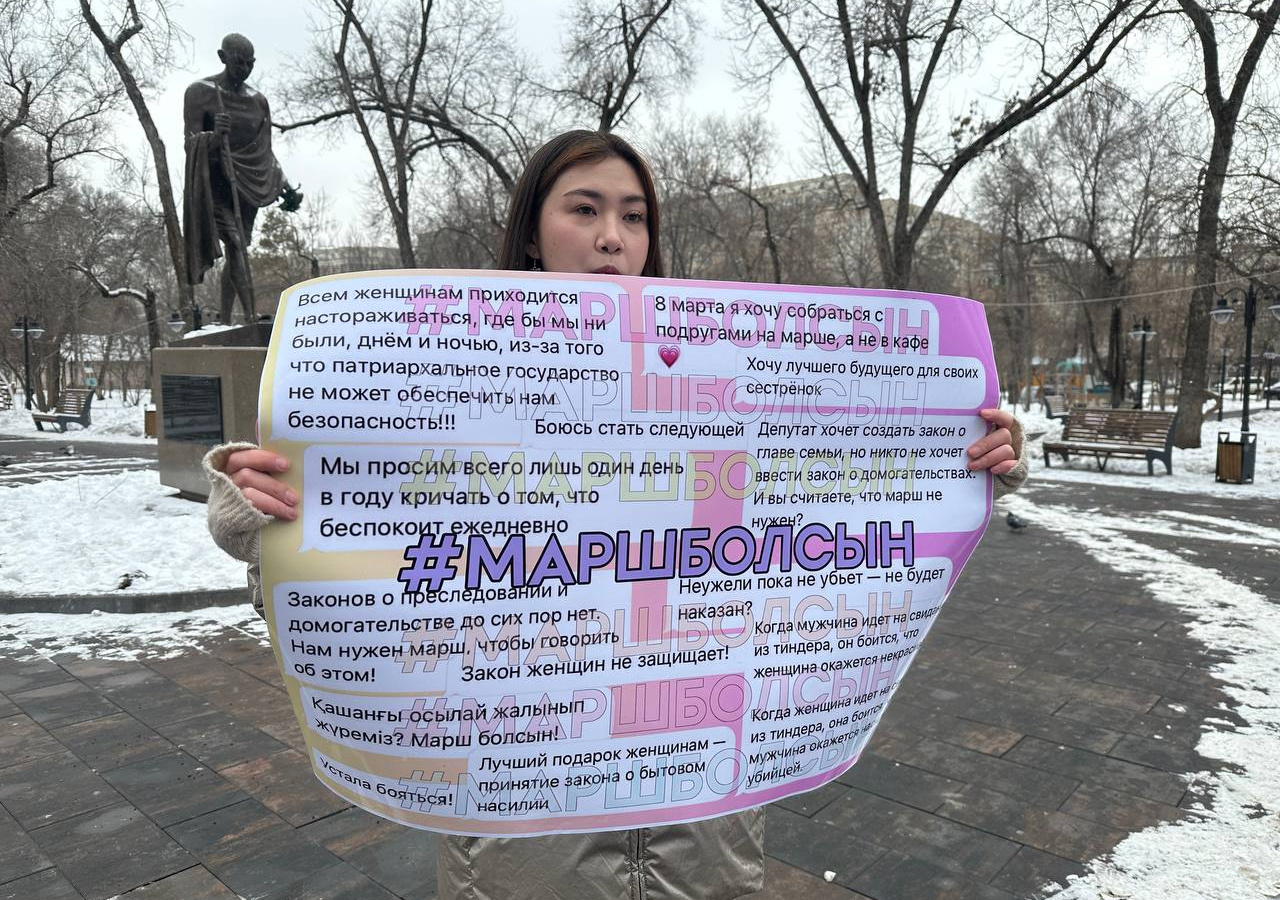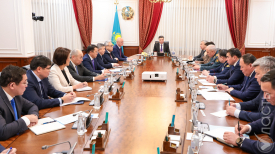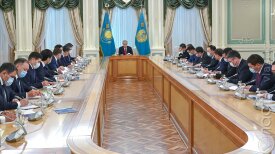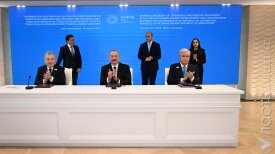What is it about women’s rights that is so threatening for the authorities in Kazakhstan? They allow pro-government rallies supposedly against domestic violence, while feminists and women activists have been denied the right to walk together on International Women’s Day on 8th of March, for the third year in a row.
Читайте этот материал на русском.
When a pro-government demonstration around violence against women took place last November, the hosts opened the event with the words: “We believe in our president. We share his opinions and we will help him.” Is this the official passphrase with which all women’s rights demonstrations should be opened, in order to be allowed by the authorities? The November 2023 event was orchestrated in minute detail, including colour coded jackets and scarves, which had been distributed among the participants beforehand. Participants were recruited online, and paid to attend. The pro-presidential organisers had no difficulty in receiving permission to hold the rally.
Meanwhile, long-time feminist activists, who have made it a life mission to fight for women’s rights and who are critical of the way in which the authorities deal with these issues, have repeatedly run into difficulties when trying to arrange demonstrations. After a 2020 rally that had not been previously approved by the Almaty authorities, two activists Arina Osinovskaya and Fariza Ospan were fined for petty hooliganism. They had symbolically burned a funeral wreath during the march. Last year, a demonstration was permitted in Gandhi Park, far from Almaty’s core. Out of sight, out of mind. Especially because the authorities have denied any marching to take place in Almaty for the third consecutive year. It seems as though feminists walking in public spaces is too controversial an idea for the authorities. After all, demonstrations that are not overtly pro-state are often banned in Kazakhstan, regardless of topic.
Freedom of assembly is a fundamental human right, which is protected by the Universal Declaration of Human Rights and the International Covenant on Civil and Political Rights (ICCPR), and which Kazakhstan must respect. Arbitrary denials to people’s rights to peaceful assembly is a clear violation of these standards, as well as Kazakhstan’s Constitution. The law on public gatherings was amended in 2020 and was widely criticised at home and abroad, including by IPHR and our partners. The main criticism focused on the practice of requiring citizens to obtain an official permission to demonstrate, placing this fundamental right under excessive state control.
Despite public reassurances in 2020 by Dauren Abayev, the then-minister of information, the law has been used to arbitrarily stifle unwanted voices, particularly those of dissent. As documented by IPHR and partners, the authorities routinely deny permission for peaceful protests on issues that are inconvenient to those in power, as well as disperse peaceful assemblies held without permission, and detain and penalize participants in such protests. Even those attempting to hold single pickets have repeatedly been denied permission to do so. Moreover, in 2019, Kazakhstani authorities banned bringing children to unsanctioned demonstrations, and violating this law could result in a large fine, or administrative detention for up to ten days. Such a law disproportionately affects women, as almost 45% of mothers in Kazakhstan spend “all their time” with their children, according to a survey conducted by the Kazakhstan Institute of Social Development, which was published in January 2023. This is a double blow to women who wish to stand up for their rights.
Domestic violence against women and femicide are widespread problems in Kazakhstan, and must be dealt with by across sectors of society. By refusing to allow public discussion of these issues, which are often considered taboo, and not allowing these problems to be raised openly in the public domain, the prospect of finding effective solutions remains remote. Restricting feminists and women’s fundamental rights to peaceful assembly is a counterproductive move by the Kazakhstani authorities, given the extent of the societal problem.
Women’s rights should not be controversial. Rights to peaceful assembly should not be violated. While the authorities in Kazakhstan admit that violations of women’s rights occur, it seems that the same authorities are still afraid of letting women speak for themselves and be seen and heard in public in their fight for change.
Alva Omarova is a researcher for International Partnership for Human Rights. IPHR is an independent, non-governmental organization founded in 2008. Based in Brussels, IPHR works closely together with civil society groups from different countries to raise human rights concerns at the international level and promote respect for the rights of vulnerable communities. See more at: https://www.iphronline.org/en/
Поддержите журналистику, которой доверяют.








